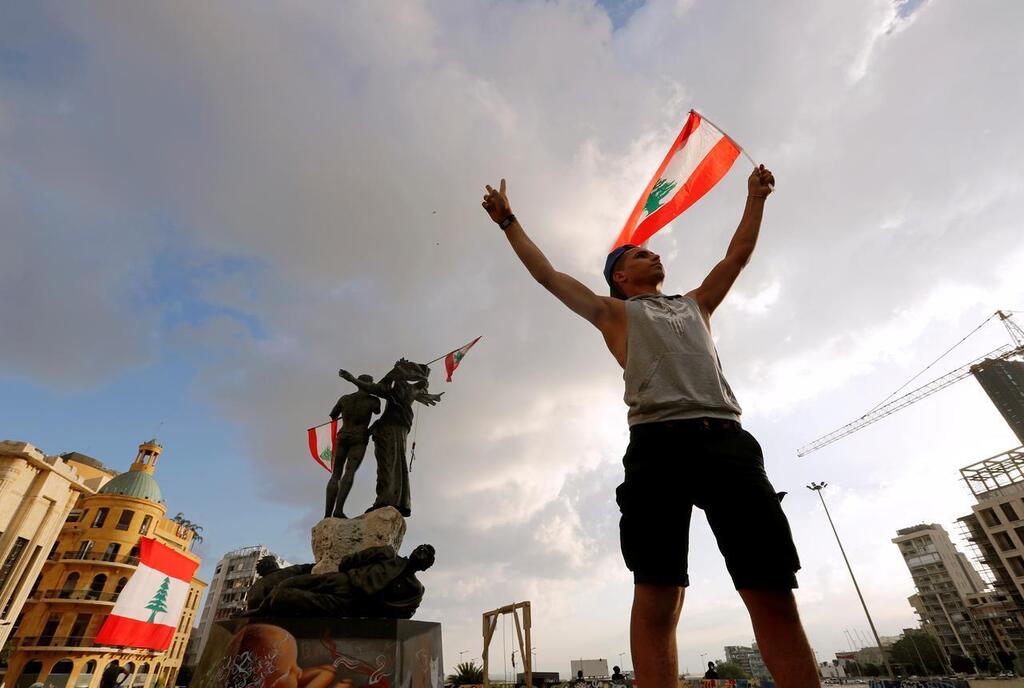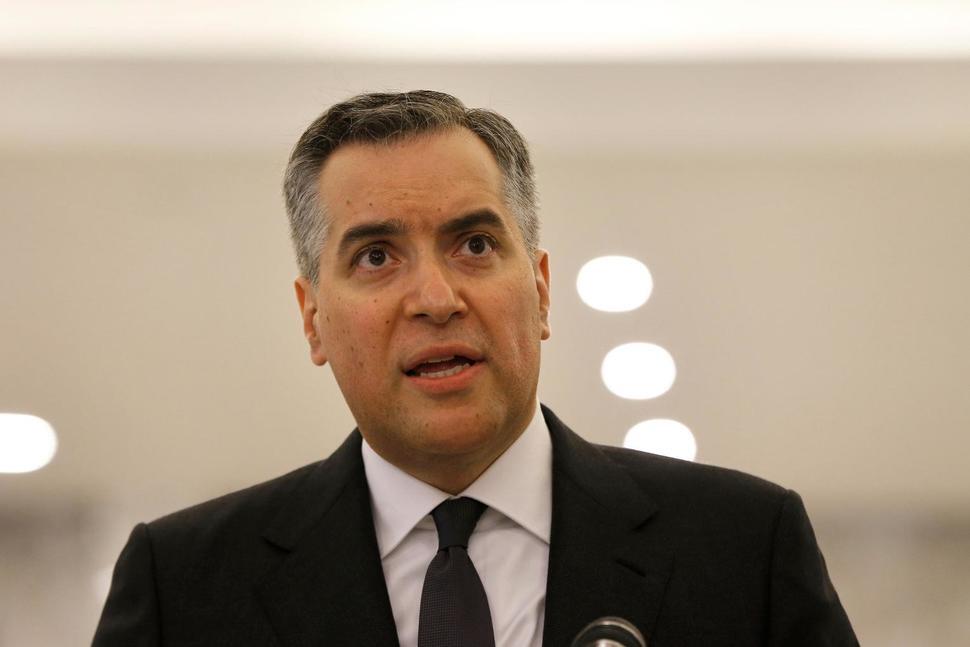Getting your Trinity Audio player ready...
Lebanon has never been a strong nation. Since gaining its independence from France in the 1940s, it has become the playground for Iran, Syria, the Palestinians and even Turkey. Let us also not forgot the massive beatings it has received from the IDF in the last 50 years.
Despite all of this, a large group of Christian and Muslim merchants managed to turn Beirut into a beautiful city, supported by a massive port.
The Switzerland of the Middle East they used to call it, the Paris of the Arab world, filled with massive parties, expensive designer shops, restaurants and casinos.
But very little of that glamorous past remains. Even Saudi Arabia, the ally who nurtured Rafik Hariri and his son Saad as prime ministers, is now keeping its distance.
Other Arab and Western nations have also turned their back on Lebanon, with Washington announcing that former finance minister and top Amal official Ali Hassan Khalil and former minister and a senior member of the Christian Marada Movement Youssef Fenianos are wanted for colluding with Hezbollah.
Anyone caught doing business with the two, Secretary of State Mike Pompeo warned, will find itself on the U.S. blacklist.
5 View gallery
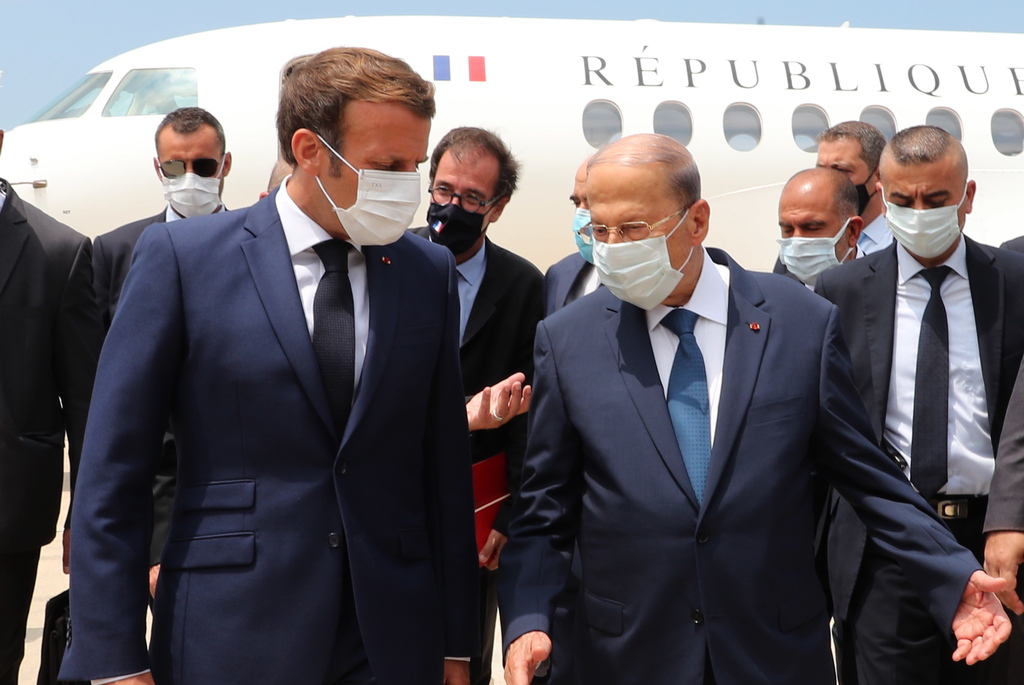

Lebanon's President Michel Aoun welcomes French counterpart Emmanuel Macron upon his arrival at Beirut airport
(Photo: Reuters)
French President Emmanuel Macron, who felt obligated to come to Lebanon's aid, came back empty-handed when his plan to form a technocratic government failed due to sectarian bickering.
Lebanon’s now former prime minister-designate Mustapha Adib, who resigned on Saturday, was the third person to hold the job in four months.
Although Adib presented President Michel Aoun with two possible lists, Hezbollah (the true power in Lebanon) insisted on maintaining Shiite control over the Finance Ministry - to keep the money following into the organization's and its leaders' coffers.
The country is also suffering from a severe brain drain, with over 1,800 young intellectuals moving to the United Arab Emirates over the last two months alone. There, they were welcomed with flowers and jobs.
In the meantime, Beirut is still trying to recover from the massive port explosion in early August that killed 200, more than 6,500 injured and over 300,000 homeless.
Lebanon has not been in a sorrier state since its civil war in the 1970s and 80s, but this time the world is apathetic.
5 View gallery
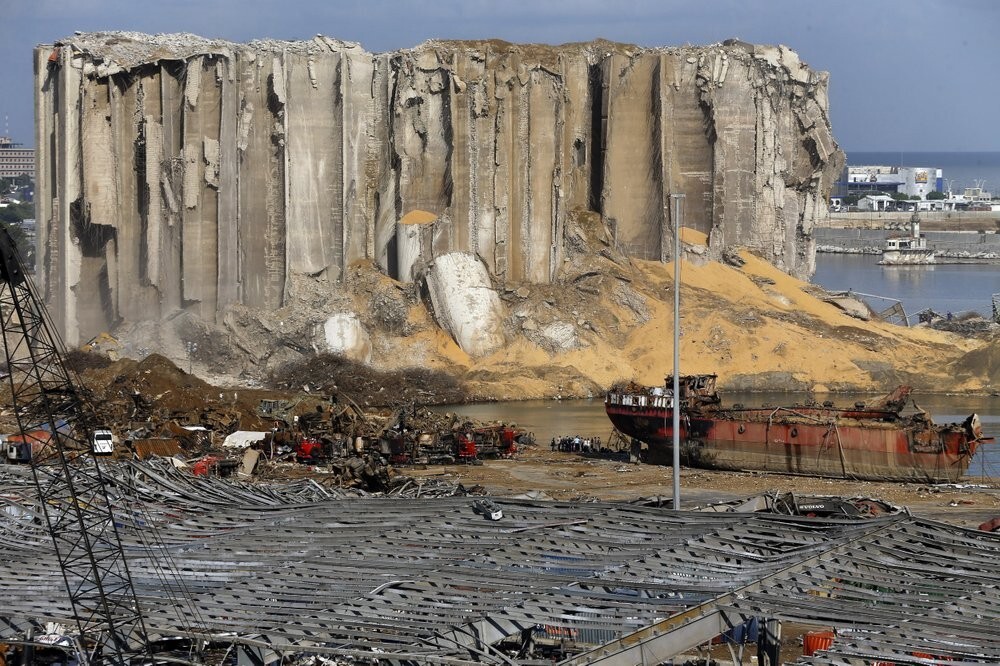

Rescue workers search for victims near the site of the explosion that hit Beirut port in August
(Photo: AP)
Veteran Lebanese journalist Nadim Koteich looked at the situation around him and asked his fellow countrymen: Why not make peace with Israel like the UAE and Bahrain? What have the Israelis really done to you? Are they behind the massive explosion at Beirut port? And if you have any scores to settle with Israel, why not do so through peace?
These questions were posed in English and Arabic in an Asharq Al-Awsat article titled, "When will peace between Israel and Lebanon arrive?"
It immediately sent waves across Lebanon.
Aoun said that, "there are still problems with Israel we need to solve before we think of peace."
Hezbollah leader Hassan Nasrallah laughed off the possibility.
But the difference now is that Lebanese social media is seeing a long-running debate about Koteich's "rational" proposal.
5 View gallery
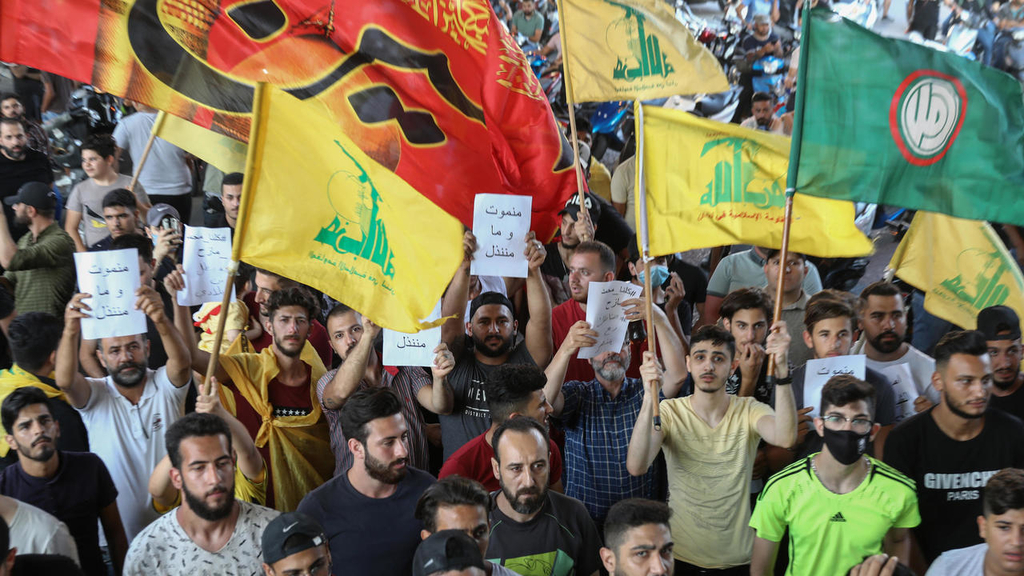

Supporters of the Shi'ite-aligned groups Hezbollah and Amal during a rally in Beirut
(Photo: AFP)
I asked several old friends in Beirut if it finally is time for such an agreement. Although we all support peace with Israel, they said, it is still far away.
Ultimately, while Hezbollah has received a serious blow to its reputation within Lebanon and the world, until it lays down its arms, there really is nothing to talk about.


